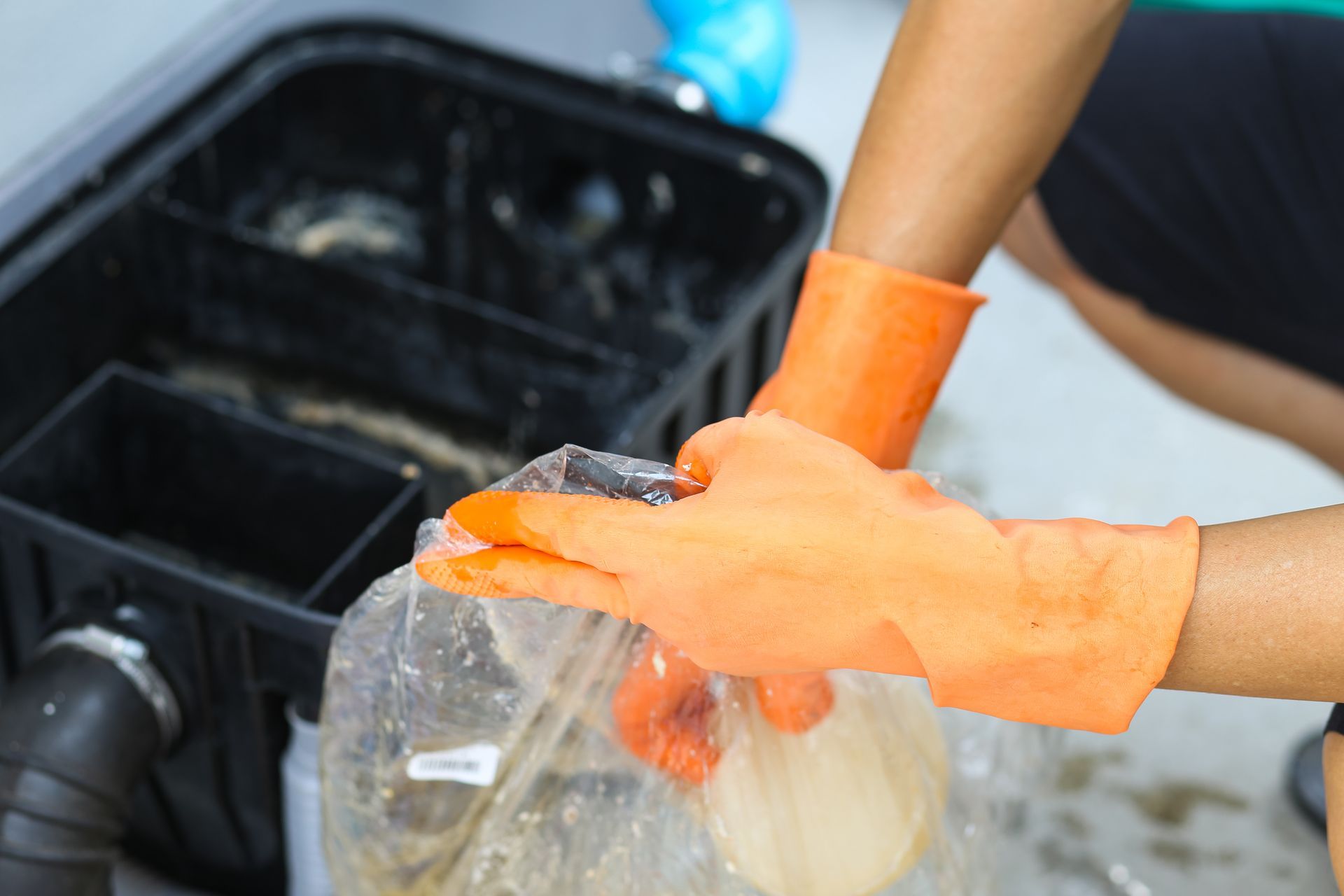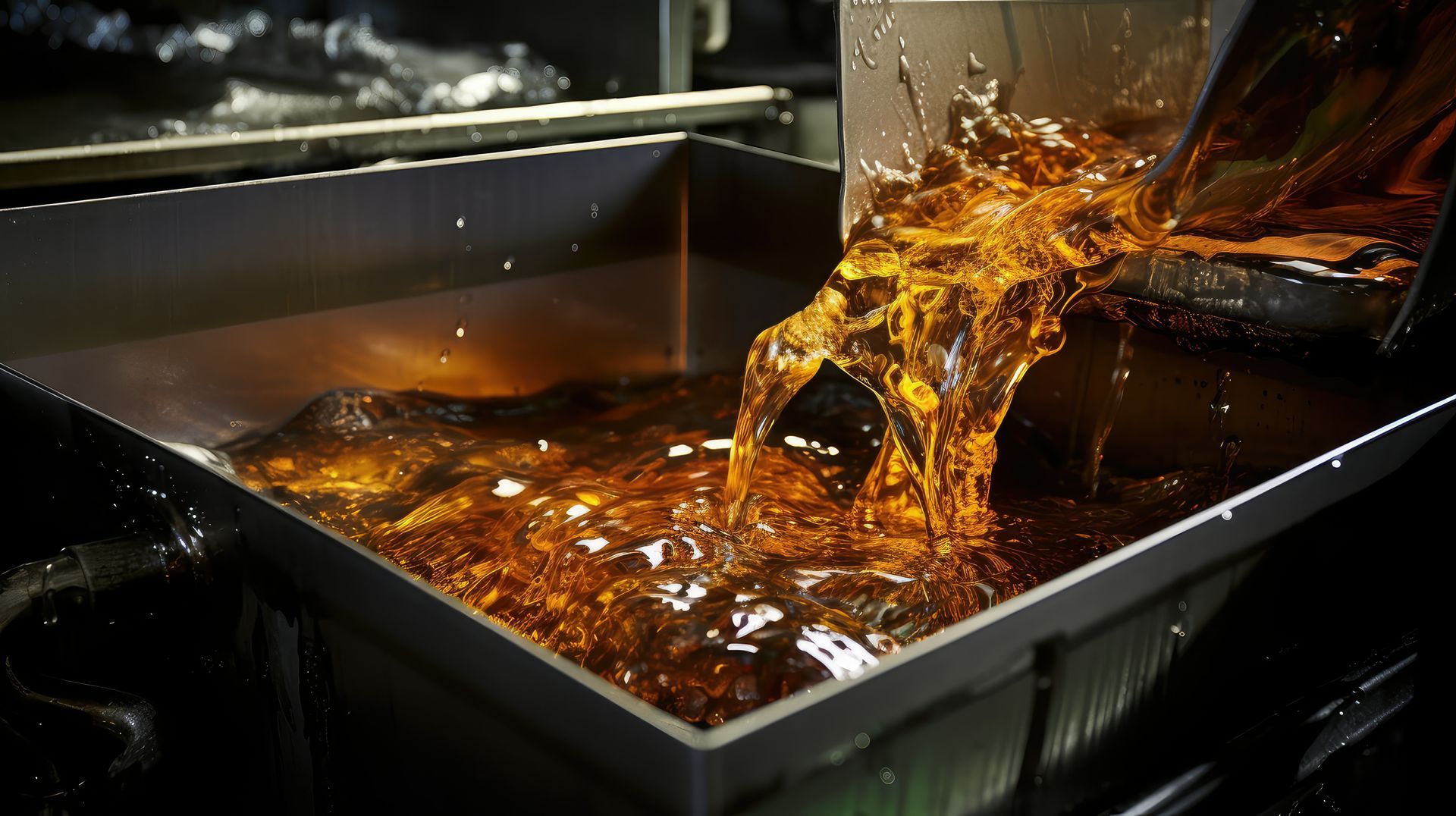The Impact of Seasonal Changes on Grease Trap Functionality and Maintenance

In a city like Atlanta, where the seasons are distinct and temperatures can range from sweltering summers to chilly winters, the functionality and maintenance of grease traps can be significantly impacted by seasonal changes.
Hot Weather Leads to Increased Grease Liquidity and Bacterial Accumulation
During the summer months, rising temperatures can dramatically impact the way grease behaves in outdoor grease traps. Grease tends to stay in a more liquid state in the warmer weather, which makes it easier to pump out and remove. Grease traps may require less rigorous scraping, which can make the cleaning process faster if the temperature in the grease trap is high enough.
Conversely, the reduced separation between liquid grease and wastewater in the grease trap can increase the risk of grease being discharged into drainage systems.
The more impactful issue with heat, from a business standpoint, is the accelerated decomposition of organic matter in the grease trap and bacterial growth. If you notice your business’s grease traps smell significantly worse in the summer months or that it starts smelling more quickly after cleanings, it’s due to the faster rate of bacterial growth.
Atlanta prohibits the use of enzymes or additional treatments to combat the growth of bacteria in grease traps or grease interceptors that discharge into the city’s wastewater system. Although it may be tempting, you shouldn’t put chemicals in your grease trap to prevent the buildup of noxious smells. More frequent grease trap cleaning is a safer solution.
Busy Tourist Seasons
Summer may lead to increased tourism and more diners for some businesses, especially in restaurants near vacation spots or tourist attractions. The increase in food preparation means more FOG being generated, further straining the grease trap system.
Businesses that experience significant seasonal variations in volume of food production may need to adjust their cleaning schedule during those months.
Cold Weather and Hardened Grease
Grease cools and solidifies rapidly in colder weather, causing it to build up more quickly inside the trap. Thicker buildup can potentially lead to blockages, especially if the grease trap isn’t cleaned frequently enough.
Hardened grease is also more difficult to clean and may require more scraping, which could lead to longer, more intensive cleanings. If left unaddressed, hardened grease can reduce the trap’s capacity and hinder its ability to filter grease from wastewater.
Make sure to schedule cleanings at regular intervals to prevent solid grease from causing major blockages.
What About Seasonal Rains in Atlanta?
A properly placed and installed grease trap with a secure lid shouldn’t be taking in a lot of rainwater. However, if the grease trap is located somewhere with poor drainage or near a stormwater runoff path, it is possible that rainwater can flow into the system, leading to rapid dilution of the grease in the system. This can make it more difficult for FOG to be effectively separated from the water and lead to grease escaping into the sewer system.
The worst-case scenario is a grease trap overflowing due to rainwater, leading to spills, messy situations and potential fines or other penalties for Atlanta businesses.
Businesses installing or replacing grease traps should talk with their installer about placement and ensure the site won’t be inundated with flooding or stormwater runoff. It’s also important to ensure the grease trap lid isn’t cracked or damaged and that it is always securely in place to prevent seepage.
Stay Proactive Year-Round on Your Grease Trap Cleaning in Atlanta
If you're looking for reliable grease trap cleaning services in any season, get in touch with our expert team at Southern Green Inc. today. We'll help you create a customized maintenance schedule to keep your system in peak condition, no matter what the weather brings.
Get a free quote today on our website or give us a call at (404) 419-6887 for one-off grease trap cleaning.
Contact us Today for a FREE Quote
We are committed to making grease trap cleaning and fryer oil recycling as clean and easy as possible. If you’d like to learn more about our services or get a quote, give us a call at (404) 419-6887.



